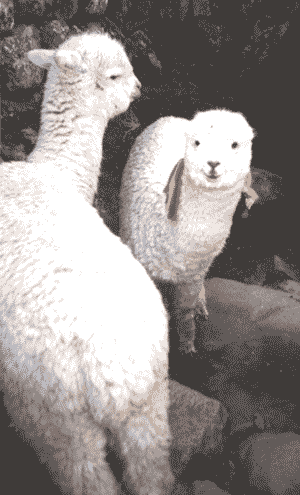
e.g. Erqekunawanchá puqllarqanki. = I suppose you played with the children.
(erqe = "children") (-kuna = plural) (-wan = "with") (-chá = speculation "supposedly") (puqllay = "to play") (-rqa = simple past tense) (-nki = 2nd person singular conjugation)e.g. Mariyaqa manapaschá allintachu tusunqa. = Perhaps Mary won't dance well.
(Mariya = "Mary") (-qa = topic marker) (mana…-chu = negative) (-chá = speculation "perhaps") (allin = "good") (-ta = adverbalizer) (tusuy = "to dance") (-nqa = future 3rd person singular conjugation)
2. "-chá" expresses doubt or incertainty on the part of the speaker. It may also be translated as "I don't know…", "I'm not sure…", "maybe".
e.g. Pichá ch'uñota mihunqa. = I don't know who will eat the ch'uño.
(pi = "who") (-chá = doubt "I don't know") (ch'uño = "dehydrated, freeze-dried potato") (-ta = direct object marker) (mihuy = "to eat") (-nqa = 3rd person singular future conjugation)
3. "-chá" may also express confusion or shock of the speaker regarding situations that appear to the speaker to be far-fetched or impossible. With this sense, it may be translated as "Only God knows…", "How…"
e.g. Imayna kusisqachá kashanki! = How happy you are/you'll be!
(Imayna = "how") (kusi = "happy") (-sqa = past participle) (-chá = shock "how") (kay = "to be") (-sha = present progressive)(-nki = 2nd person singular present/future tense)
1. Fill-in the suffix
2. Multiple choice
3. Matching